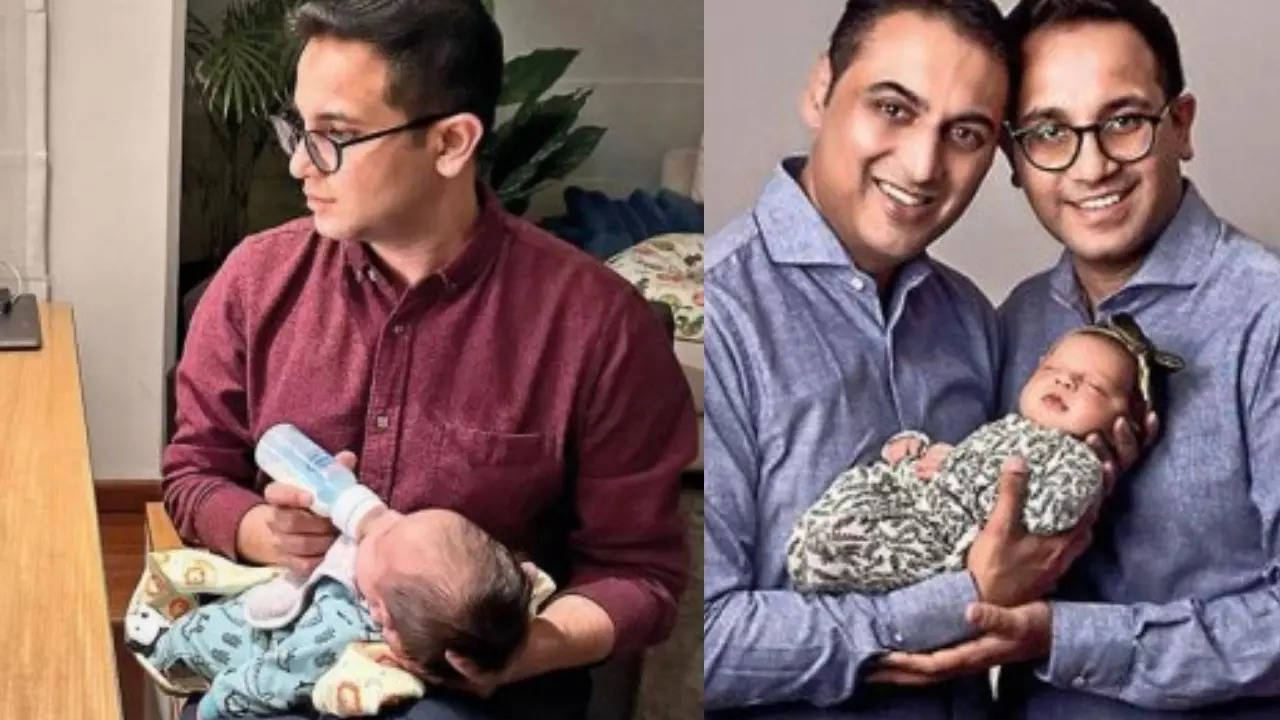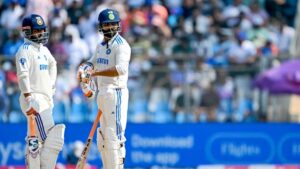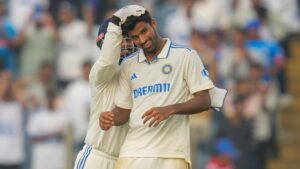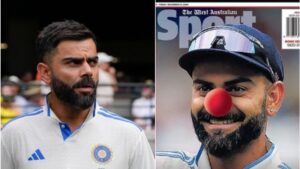Hopes pinned on marriage equality case in Supreme Court: Scared but optimistic, says US gay couple | India News – Times of India

Eleven years ago, at a pride parade in Washington DC, the theme— an Indian wedding baraat— was fitting. Vaibhav Jain, 26, was a deeply closeted student attending his first pride march, while Parag Mehta, already out to his family, was going up to any “vaguely brown looking person” and dancing with them. “I was single so to entertain myself, I would dance with random strangers. I couldn’t have imagined that one of those strangers would become my husband,” says Mehta. The couple got married in 2017, followed by another big, fat desi wedding in Texas and a Delhi reception. A happy ending except for one fact — their marriage is not recognised in India. And it was this that prompted them to become two of the 52 petitioners in the case currently being heard in the Supreme Court.
Interestingly, it was at their Delhi reception that they met lawyers Arundhati Katju and Menaka Guruswamy and began discussions on the importance of marriage equality in India. It hit home when they tried to get the wedding registered at the Indian consulate in New York under the Foreign Marriage Act.
“We were told that we couldn’t do that because we are a same-sex couple,” he says. The implications of their marriage not being recognised in India are manifold. “During the pandemic, Vaibhav’s father was hospitalised. We wanted to be there for him. Vaibhav, his brother and his wife were allowed to travel, but I was not because I was an OCI. This prevented me from being treated as a spouse,” says Mehta. “When we go to India, I have no legal rights or standing. If either of us were to fall ill, the other would have no power of attorney.”
The sense of urgency has only deepened for them. “We had a baby girl through surrogacy in March and have a baby boy due next month. One is biologically related to me, and the other to Vaibhav,” Mehta says. “When we bring our kids to India, we do not have the legal power to do what is best for them. “We don’t even know what kind of visa to apply for the kids because the form asks for the mother’s name,” points out Jain. Plus, if Jain’s father wanted to leave him an inheritance, Mehta would have no legal right to it, and it is possible that their kids would not either.
As they watch the hearings unfold, they are scared yet optimistic, disappointed in some, feeling supported by others. “I feel like I am finally being heard. It’s so wonderful to see an inclusive panel and the chief justice’s statements have been great to hear,” Jain says.
But one of the frustrating parts, says Mehta, has been hearing solicitor general Tushar Mehta’s arguments. For instance, the contention that queer folk are urban elites. “When we got married, videos from the wedding went viral. Vaibhav, because he speaks Hindi, got messages from young queer people in villages and small towns. Why is it that my husband has a better understanding of the community than the government?”
Jain says waiting for a decision is nerve-wracking. “I have hopes from my judiciary. They have listened to us but this decision will impact the rest of our lives.” Despite all the uncertainty, they feel a degree of optimism. Mehta says, “Whether we win at this moment, or it takes a few more years, ultimately, we are going to get there. When I listen to Vaibhav’s cousins, nieces and nephews, I am struck by how far ahead the younger generation is. His cousin lives in a small town outside Lucknow and tells us, oh this one is bisexual and that one is gay. The kids have figured this one out. At the end of the day, the question is, what side of history do you want to be on?”
Interestingly, it was at their Delhi reception that they met lawyers Arundhati Katju and Menaka Guruswamy and began discussions on the importance of marriage equality in India. It hit home when they tried to get the wedding registered at the Indian consulate in New York under the Foreign Marriage Act.
“We were told that we couldn’t do that because we are a same-sex couple,” he says. The implications of their marriage not being recognised in India are manifold. “During the pandemic, Vaibhav’s father was hospitalised. We wanted to be there for him. Vaibhav, his brother and his wife were allowed to travel, but I was not because I was an OCI. This prevented me from being treated as a spouse,” says Mehta. “When we go to India, I have no legal rights or standing. If either of us were to fall ill, the other would have no power of attorney.”
The sense of urgency has only deepened for them. “We had a baby girl through surrogacy in March and have a baby boy due next month. One is biologically related to me, and the other to Vaibhav,” Mehta says. “When we bring our kids to India, we do not have the legal power to do what is best for them. “We don’t even know what kind of visa to apply for the kids because the form asks for the mother’s name,” points out Jain. Plus, if Jain’s father wanted to leave him an inheritance, Mehta would have no legal right to it, and it is possible that their kids would not either.
As they watch the hearings unfold, they are scared yet optimistic, disappointed in some, feeling supported by others. “I feel like I am finally being heard. It’s so wonderful to see an inclusive panel and the chief justice’s statements have been great to hear,” Jain says.
But one of the frustrating parts, says Mehta, has been hearing solicitor general Tushar Mehta’s arguments. For instance, the contention that queer folk are urban elites. “When we got married, videos from the wedding went viral. Vaibhav, because he speaks Hindi, got messages from young queer people in villages and small towns. Why is it that my husband has a better understanding of the community than the government?”
Jain says waiting for a decision is nerve-wracking. “I have hopes from my judiciary. They have listened to us but this decision will impact the rest of our lives.” Despite all the uncertainty, they feel a degree of optimism. Mehta says, “Whether we win at this moment, or it takes a few more years, ultimately, we are going to get there. When I listen to Vaibhav’s cousins, nieces and nephews, I am struck by how far ahead the younger generation is. His cousin lives in a small town outside Lucknow and tells us, oh this one is bisexual and that one is gay. The kids have figured this one out. At the end of the day, the question is, what side of history do you want to be on?”









